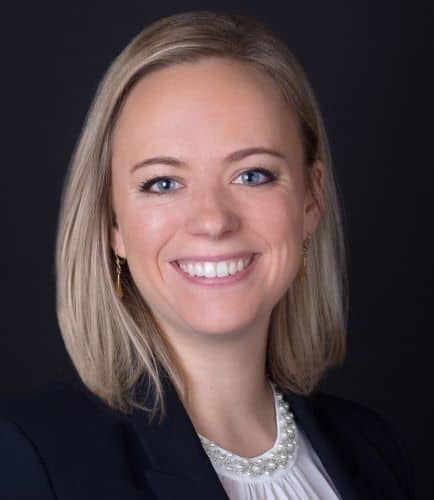To make Wealthtender free for readers, we earn money from advertisers, including financial professionals and firms that pay to be featured. This creates a conflict of interest when we favor their promotion over others. Read our editorial policy and terms of service to learn more. Wealthtender is not a client of these financial services providers.
➡️ Find a Local Advisor | 🎯 Find a Specialist Advisor

A financial advisor specializing in female-led households can help couples come together to build a personalized plan to achieve their goals.
Long gone are the days when a stereotypical household led by a dominant male with a stay-at-home wife was portrayed as the norm in the US. While there’s more work to be done in areas like gender equality and equitable compensation for women in the workplace, an increasing number of households are now led by women.
In these female-led relationships, women assume primary responsibility and oversight for many important household matters, with family finances often near the top of the list.
If you’re the head of a female-led household, you may be looking for a financial advisor who understands the dynamics of your relationship and specializes in working with couples whose circumstances are similar to your own.
You’ll likely find dozens of nearby financial advisors well-suited to help you reach your money goals with a personalized plan. But it may be more difficult to find a financial advisor who specializes in serving female-led households.
Fortunately, many financial advisors offer virtual services so you can meet online no matter where you (or they) live. This means you can choose to hire a specialist financial advisor who lives hundreds of miles away if you decide their knowledge and experience working with individuals and couples in female-led relationships is a better fit to help with your unique financial planning needs.
Financial Planning for Female-Led Households
💡 In the Q&A below, you’ll gain insights from financial advisors who work with female-led households to help them make smart decisions to enjoy life more today while preparing for a comfortable retirement in the future.
🙋♀️ Do you have questions not answered below? Use the form on this page to submit your questions, and we’ll update this article with answers from the financial professionals and educators in the Wealthtender community. You can also contact the financial advisors featured in this article directly to set up an introductory call or ask your questions by email.
💸 Smart Money Insights for Female-Led Households
This page is organized into sections to help you quickly find the information you need and get answers to your questions:
- Q&A with Financial Advisors Specializing in Serving Female-Led Households
- Get Answers to Your Questions About Financial Planning for Female-Led Households
- Browse Related Articles
Q&A: Financial Advisors Specializing in Female-Led Households
Get to Know: ✅ Philip Weiss, CFA, CPA | ✅ Emily Rassam, CFP®, CRPS, AIFA, NSSA, CDAA
Q&A with Philip Weiss, CFA, CPA
We asked Phoenix, Maryland-based financial advisor Phil Weiss to answer questions about financial planning useful to women and couples in female-led households based on his more than 30 years of experience serving clients with similar circumstances.
Q: What is a common financial planning challenge unique to women in their fifties who are head of their household that you frequently encounter? How do you work with them to overcome this challenge?
Under the traditional model, the husband often manages the family finances. This means he takes primary responsibility for determining how much to save for retirement and how the funds should be invested. In many cases – but not all – he will pay the bills, too. The driver of this approach is that the wife takes the lead role in caring for the children. Sometimes, she helps care for her parents, too. This leaves her a bit removed from the details of the family’s finances. As the kids get older and/or retirement approaches, she starts to ask her spouse questions like the following:
- Have we saved enough for retirement?
- Can we pay for our children’s education?
- What will we be able to do in retirement?
He can’t answer those questions, so she wants to start looking for someone like me who can help. Apprise’s process is called the “Pathway to an Informed Retirement.” (See this video for a brief overview.) During this process, I always remind couples that they should both answer my questions. I want to make sure that their financial plan reflects what they both want. It should not only reflect the ideas of one or the other. I also endeavor to find out what matters most. We don’t just discuss financial matters. At the end of the financial planning process, each client gets a one-page financial plan. This states, “Your Most Important Thing.” It also lists “Your Family Priorities.” You work hard. You save money for your future. You want to make sure how you spend it reflects what matters to you.
During the financial planning process, I also remind couples of the importance of making joint decisions around such things as when to start claiming Social Security benefits. Statistically, a woman is more likely to be a surviving spouse than her husband. As a result, I also remind couples of the benefits that properly timed Roth conversions can provide to a surviving spouse – and even your heirs if there is money left after you’re both gone.
Fortunately, when I talk to younger clients, I find that we are moving away from the traditional model. Women are becoming more actively involved in the family’s finances. I hope this trend continues.
Q: For women who are the head of the household and unsure whether or not they should hire a financial advisor at the current point in their lives, what guidance can you provide to help them make a more informed and educated decision?
Oftentimes women face financial challenges that men don’t. Women tend to earn less. On average, women live longer than men. Women typically have more caregiving responsibilities than men, too. This can put them behind when it comes to saving for the future.
Plus, for most of our professional lives, we do what we can to save for the future. We have a basic understanding of the tax costs and benefits related to asset accumulation. We know we don’t pay taxes on money that goes into an account like an IRA or a workplace retirement account. We also know that we should save for our retirement. But we don’t know how much to save or what we can do with what we save. A financial advisor can help with those issues.
In addition, as you approach and enter retirement, the rules change. You switch from asset accumulation to asset decumulation. You must decide when to start collecting Social Security benefits – a decision that should be coordinated with your spouse’s decision. Tax planning strategies can help reduce the tax cost of withdrawing your retirement assets from any tax-deferred accounts. These strategies can benefit a married couple, a surviving spouse, and even your heirs.
Working with a financial professional can help you make more informed and better-educated decisions. This can leave you with more money to spend in your retirement years. There’s no reason to pay more than you have to. An advisor can help you optimize the value of your retirement assets.
Get to Know Philip Weiss, Financial Advisor for Female-Led Households:
View Phil’s profile page on Wealthtender or visit his website to learn more.
Q: How do the services you offer women who are the primary breadwinner in their household distinguish your firm from other advisory firms?
We don’t believe that your primary goal should be to beat the market or strive to earn the maximum return on your money. Trying to beat the market can also increase the risk associated with your portfolio. This means you could fare even worse during a down market. Performing worse than the market could jeopardize your future, especially if that happens when you are close to – or in – your retirement years.
Instead, we believe the primary goal should be to live your desired life in retirement. We ask a series of life planning and other philosophical questions that help us understand what matters most to you. We work to help you spend your money on what matters most to you.
Q: When you first speak with a woman in a female-led household, what questions do you like to ask to better understand their unique circumstances and determine how you can best help them achieve their goals?
Here are some of my favorite questions:
- As we get started, I’m wondering what made you decide to invest your time to speak with me today?
- When you think about financial planning – or your personal finances – what is the biggest challenge you face? Is there anything that keeps you up at night?
- What’s important about money to you?
- When it comes to working with a fiduciary advisor, what expectations do you have in terms of what services will be performed?
- If you had to paint a picture for me, what does your desired future look like?
- Let’s say we decide to work together. If we were meeting three years from today, what would have had to happen personally and professionally for this relationship to have been a success?
If we agree to work together, my favorite questions come during our first meeting. I refer to it as a life planning meeting. This series of questions gives me an opportunity to start to get to know you better and understand what matters most to you.
Q: What questions do you recommend women in a female-led relationship ask financial advisors they’re considering hiring to help them decide if they’re a good fit?
- How are you set up to do business, and are you a fiduciary 100% of the time?
- How do you get paid?
- What areas of financial planning do you provide advice on beyond managing my investments, and how often will you update my financial plan?
- Do you take a holistic approach to financial planning that goes beyond managing my investment portfolio and understanding what is most important to me?
- Which professional credentials or designations do you have, and what are their requirements?
Q: Is there a particularly memorable experience or a moment in your life when you first decided to specialize in serving women in female-led relationships was an area of financial planning you wanted to specialize in?
Working with women in female-led relationships happened naturally. I hadn’t even realized how many female-led households I work with until a friend suggested that I should work with more women. Her question led me to look at my client base more closely. I discovered that this applied to about two-thirds of my client relationships.
That led me to start thinking more about how that came to pass. As described in my “Confessions of a Financial Advisor” blog, I trace it back to the struggles I saw my mother go through before her untimely passing at the age of 53. We didn’t realize the full scope of the problems until she was diagnosed with breast cancer. My parents had to sell their home. Their finances were a mess. My mom asked me to help. I did what I could, but, unfortunately, she passed away a little more than two years later.
I want to help keep other women from experiencing what my mother did. When I help my female clients, part of me feels like I’m still helping my mom.
Q&A with Emily Rassam, CFP®, CRPS, AIFA, NSSA, CDAA
Emily Rassam is a financial advisor in Charlotte, North Carolina, who works closely with clients in female-led households. We asked Emily to answer a few questions based on her experience working with these clients to help others in similar circumstances.
Q: What is a common financial planning challenge unique to female-led relationships that you frequently encounter when working with your clients? How do you work with them to overcome this challenge?
Many women choose to work with me after a bad past relationship with a financial advisor. In my experience, it’s all-too-common that an advisor condescendingly addressed their partner as the primary, talked over them, or treated them like “a little old lady.”
During initial conversations with a new client, I take the time to understand the personality styles of the household members and who takes on the primary responsibilities of managing the finances. It is important to recognize how each individual wants to be addressed and how they communicate. We elicit responses from the non-primary member as well and will often help mediate differences in their answers. The plans and strategies we build must consider both partners’ goals, thoughts, and preferences.
Women, more so than men, face unique challenges in the wealth-building and wealth-preservation processes. Women are more likely to step back from their careers to raise a family, help care for aging parents, and manage the household. To this day, there’s a wage gap where women, especially POC, receive less pay than their male counterparts when applying for and working in the same job with identical experience and credentials. Additionally, women live longer than men and are more often will require expensive long-term care. My female clients are more likely to want to be concerned with holding more money to cover uncertain costs during their final years.
Q: For women who are the head of the household and unsure whether they should hire a financial advisor at the current point in their lives, what guidance can you provide to help them make a more informed and educated decision?
While we no longer live in villages, there is still a desire for community and to learn and educate ourselves about topics. We also want to be heard and understood. In my experience working in the financial industry, women do not want to be told what to do. They desire to partner with a quality planner on the important financial decisions that shape their lives. Women want to understand and feel comfortable with strategies and risks along with being equipped with resources to learn more.
I believe that some independent women choose not to hire an advisor because they want to maintain control over financial decisions. It’s also unfortunately common that they had a bad previous relationship with a financial advisor. Finding the right advisor with whom to work is paramount – I recommend interviewing several advisors until you find someone who can help you organize your economic life, collaborate on financial planning decisions, and bring value to systems you already have.
Get to Know Emily Rassam, Financial Advisor for Female-Led Households:
View Emily’s profile page on Wealthtender or visit her website to learn more.
Q: How do the services you offer women who are the primary breadwinner in their household distinguish your firm from other advisory firms?
There are four facets to our financial planning approach that make Archer stand out.
- Financial Personality Profiling. Women are often more interested in reflecting internally on what makes them tick. We take the time to understand our client’s relationship with money and why they spend and save the way they do.
- Risk Profiling. Along with a personal approach to financial planning, we use state-of-the-art software to gauge clients’ risk tolerance to identify the level of volatility each person is willing to accept. We never assume we know better than our clients, nor do we push them into portfolios outside of their comfort zone.
- Financial Life Planning. Not everything can be determined from a computer program, however. Our female clients, in particular, engage in deep conversations that stem from thought-provoking softer types of questions. Those discussions and collaborations help build the best financial plans.
- Stress Test Scenarios. Our financial plans project more than just the ‘likely’ outcome. We test the client’s plan against many ‘what-if’ scenarios, including poor future market performance, higher inflation, and living longer than expected.
Q: When you first speak with a woman in a female-led relationship, what questions do you like to ask to understand her unique circumstances better and determine how you can best her achieve her goals?
It is all about understanding what matters to her. What are her values, and what has shaped her life – both from a financial point of view and more broadly? Here are some of my favorite questions to ask:
- Have you worked with a financial planner before? What went well, and what could have been improved?
- What challenges get in the way of achieving your financial goals?
- What do you want to accomplish in today’s meeting? What does a successful meeting look like?
- What would happen if your financial goals come true? How would you know when this happened, and how would it be measured?
- Paint a picture of your retirement – how do you fill your days, and how do you feel?
- If you could solve one financial issue today by waving a magic wand, what would you solve?
Q: What questions do you recommend women in a female-led relationship ask financial advisors they’re considering hiring to help them determine if they are a good fit?
Ask the advisor to take you through their financial planning process and a sample financial plan. You will learn a lot about the considerations and assumptions used. Overall, you want confidence in the advisor’s technical knowledge, but also their ability to understand you and your values.
Do they seem right to you? Which what-if scenarios do they run your plan against? Women generally want to know that their plan will hold up if (and when) things go wrong at times.
Also, follow your gut. Do you enjoy conversations with this financial advisor? Are you seen, heard, and understood? Are they also handling the human side of money and planning considerations beyond the math? Are you confident the advisor will work with you at your risk tolerance level? Or do you feel pressured into higher- or lower-risk investments than you are comfortable with?
Q: Is there a particularly memorable experience or a moment in your life when you first decided that you wanted to specialize in serving women in female-led relationships?
I will never forget my frustration when my husband and I had to open a new bank account. I explicitly told the banker that I handle our household finances and am the primary on the account. I am listed first on all our accounts, and my contact information is primary. Even though I made this clear, the banker volleyed questions to my husband, my husband was made primary on our newest joint checking account, and they call him first with any questions. I have also been told to “check with my husband” before making a major purchase, implying I’m not capable to make that type of decision for our household.
These are two of many first-hand experiences that I’ve had as the primary manager of our household finances. It instilled in me that women are still not as respected as men in the financial world. It’s sad. And these events still, to this day, drive me to do all I can to serve women in female-led relationships.
Are you a financial advisor who specializes in serving female-led households?
✅ Join Wealthtender and get featured as a specialist financial advisor based on your knowledge and experience. (Subject to availability and terms.)
✅ Sign up today and join financial advisors attracting their ideal clients on Wealthtender
✅ Or request more information by email:
Resources to Help You Choose a Financial Advisor
✅ Top Questions to Ask a Financial Advisor
✅ How Much Does a Financial Advisor Cost?
🙋♀️ Have Questions About Financial Planning for Female-Led Households?
📰 Browse Related Articles
Are you ready to enjoy life more with less money stress?
Sign up to receive weekly insights from Wealthtender with useful money tips and fresh ideas to help you achieve your financial goals.
About the Author

Brian Thorp
Founder and CEO, Wealthtender
Brian and his wife live in Texas, enjoying the diversity of Houston and the vibrancy of Austin.
With over 25 years in the financial services industry, Brian is applying his experience and passion at Wealthtender to help more people enjoy life with less money stress.
To make Wealthtender free for readers, we earn money from advertisers, including financial professionals and firms that pay to be featured. This creates a conflict of interest when we favor their promotion over others. Read our editorial policy and terms of service to learn more. Wealthtender is not a client of these financial services providers.
➡️ Find a Local Advisor | 🎯 Find a Specialist Advisor






